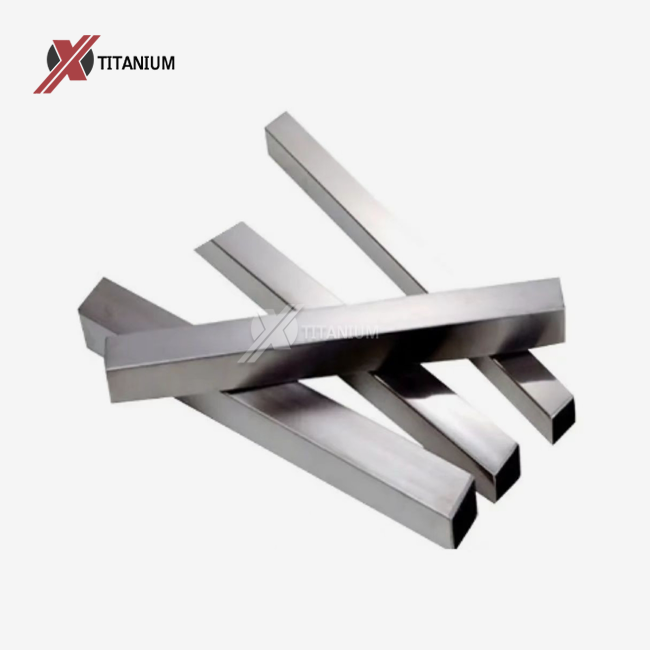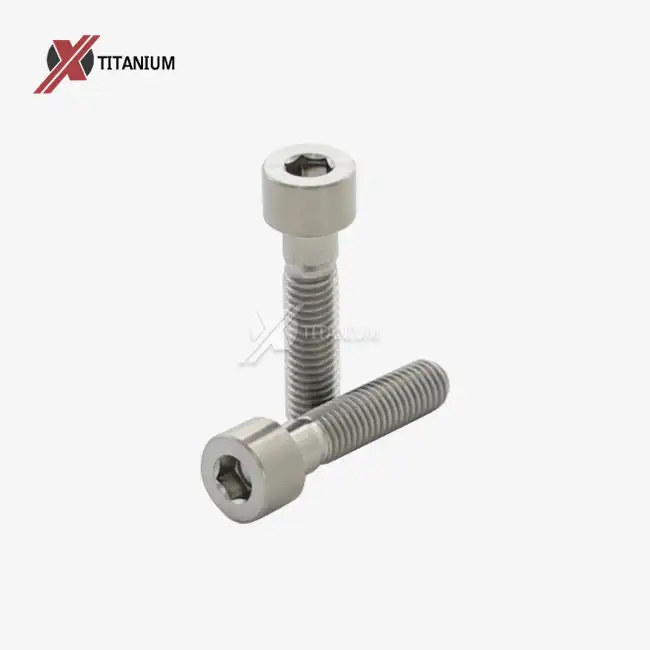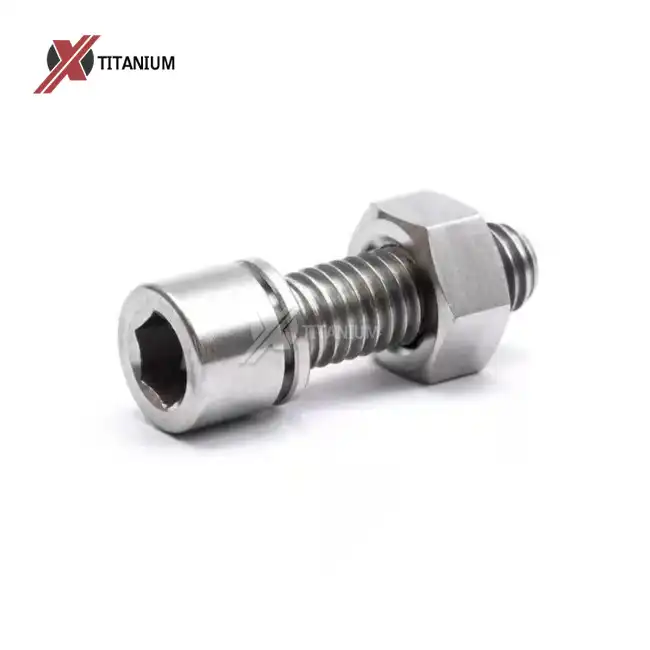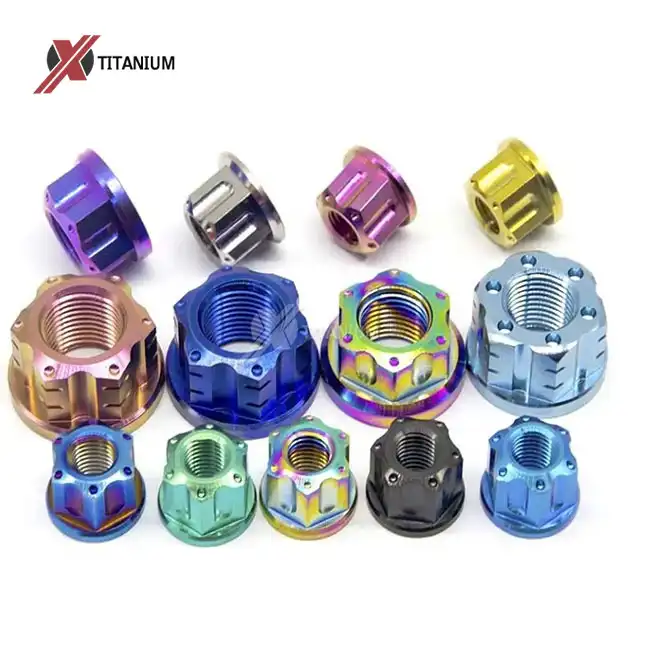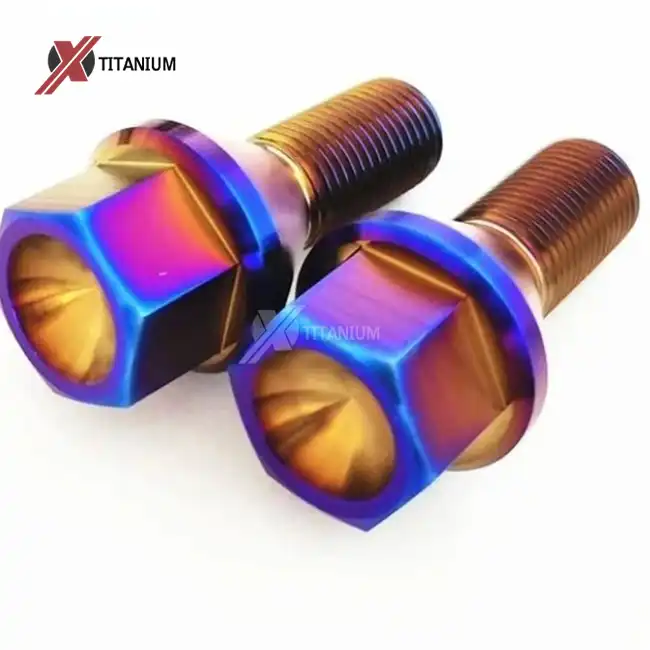The Marvels of Titanium Square Rod Technology
Titanium square rods represent a pinnacle of metallurgical engineering, offering a unique combination of properties that make them invaluable in various applications. These rods are crafted from high-grade titanium alloys, typically Grade 5 (Ti-6Al-4V), which provides an optimal balance of strength, durability, and corrosion resistance.
Unparalleled Corrosion Resistance
One of the most striking features of titanium square rods is their exceptional corrosion resistance. This property stems from titanium's ability to form a stable, protective oxide layer on its surface when exposed to oxygen. This natural barrier shields the underlying metal from corrosive substances, making titanium square rods ideal for use in marine environments, chemical processing plants, and other corrosive settings.
Strength-to-Weight Ratio
Titanium square rods boast an impressive strength-to-weight ratio, surpassing many other metals in this aspect. This characteristic makes them particularly valuable in aerospace and automotive industries, where reducing weight without compromising strength is crucial. The low density of titanium (approximately 4.43 g/cm³) combined with its high tensile strength (around 900 MPa for Grade 5) results in components that are both lightweight and robust.
Biocompatibility and Medical Applications
The biocompatibility of titanium square rods has revolutionized the medical industry. These rods are non-toxic and well-tolerated by the human body, making them ideal for use in implants, prosthetics, and surgical instruments. The material's ability to osseointegrate – form a direct structural and functional connection with living bone tissue – has made it indispensable in orthopedic and dental implants.
Diverse Applications of Titanium Square Rods
The unique properties of titanium square rods have led to their adoption across a wide range of industries and applications. Let's explore some of the most significant uses of these versatile components.
Aerospace Industry
In the aerospace sector, titanium square rods play a crucial role in various aircraft components. They are used in the construction of airframes, engine parts, and landing gear systems. The material's high strength-to-weight ratio allows for the design of lighter aircraft, leading to improved fuel efficiency and performance. Additionally, titanium's resistance to fatigue and corrosion ensures the longevity of these critical components, enhancing overall safety and reliability.
Marine Engineering
The marine environment presents unique challenges due to its corrosive nature. Titanium square rods excel in this setting, resisting the corrosive effects of saltwater and marine organisms. They are utilized in the construction of offshore platforms, submarine components, and shipbuilding. The material's durability and resistance to erosion make it an ideal choice for propeller shafts, heat exchangers, and desalination plant components.
Chemical Processing
In the chemical processing industry, titanium square rods find extensive use due to their resistance to a wide range of corrosive chemicals. They are employed in the construction of reactors, storage tanks, and piping systems that handle aggressive substances. The material's ability to withstand high temperatures and pressures while maintaining its structural integrity makes it invaluable in this sector.
Medical Devices
The medical field has embraced titanium square rods for their biocompatibility and mechanical properties. They are used in the manufacture of surgical instruments, dental implants, and orthopedic devices such as bone plates and screws. The material's ability to integrate with human tissue without causing adverse reactions has revolutionized the field of implantology, improving patient outcomes and quality of life.
Manufacturing and Quality Assurance
The production of titanium square rods involves sophisticated manufacturing processes to ensure consistent quality and performance. These processes are critical in maintaining the material's unique properties and meeting industry-specific standards.
Advanced Manufacturing Techniques
Titanium square rods are typically produced through a combination of hot working and cold finishing processes. Hot rolling is often used to shape the initial billet into a square cross-section, followed by cold drawing or swaging to achieve the final dimensions and surface finish. Annealing treatments may be applied to optimize the material's mechanical properties and relieve internal stresses.
Surface Treatments
Various surface treatments can be applied to titanium square rods to enhance their performance in specific applications. These may include:
-
Polishing: To achieve a smooth, reflective surface for aesthetic or functional purposes.
-
Pickling: To remove surface contaminants and restore the natural oxide layer.
-
Anodizing: To create a controlled oxide layer, which can improve corrosion resistance and alter the surface appearance.
-
Coating: Application of specialized coatings for enhanced wear resistance or specific surface properties.
Quality Control Measures
Rigorous quality control measures are implemented throughout the manufacturing process to ensure that titanium square rods meet or exceed industry standards. These measures typically include:
-
Material composition analysis to verify the correct alloy grade.
-
Dimensional inspections to ensure adherence to specified tolerances.
-
Mechanical testing, including tensile strength, yield strength, and hardness measurements.
-
Non-destructive testing methods such as ultrasonic inspection to detect internal defects.
-
Corrosion resistance testing to verify the material's performance in specific environments.
Certifications and Standards
Titanium square rods are often required to meet specific industry standards and certifications. Common standards include:
-
ASTM B348: Standard Specification for Titanium and Titanium Alloy Bars and Billets
-
AMS 4928: Aerospace Material Specification for Titanium Alloy Bars, Wire, Forgings, and Rings
-
ISO 5832-3: Implants for surgery - Metallic materials - Part 3: Wrought titanium 6-aluminium 4-vanadium alloy
Conclusion
Titanium square rods have proven to be indispensable in numerous industries due to their exceptional corrosion resistance, strength-to-weight ratio, and biocompatibility. From aerospace and marine engineering to medical devices and chemical processing, these versatile components continue to push the boundaries of material science and engineering. As manufacturing techniques advance and new applications emerge, the importance of titanium square rods in modern industry is likely to grow. Their unique combination of properties makes them a cornerstone of innovation in fields where performance, reliability, and durability are paramount.
Discover the transformative power of titanium square rods for your industry applications. At Baoji Chuanglian New Metal Material Co., Ltd., we specialize in manufacturing high-quality titanium products tailored to your specific needs. With over a decade of experience, our expert team is ready to assist you in selecting the perfect titanium solution for your project. Contact us today at info@cltifastener.com or djy6580@aliyun.com to explore how our square titanium rods can elevate your engineering capabilities and drive innovation in your field.
FAQ
What makes titanium square rods corrosion-resistant?
Titanium forms a natural oxide layer when exposed to oxygen, protecting it from corrosion.
Are titanium square rods suitable for medical implants?
Yes, they are biocompatible and often used in orthopedic and dental implants.
How do titanium square rods compare to other metals in terms of strength?
They offer an excellent strength-to-weight ratio, outperforming many other metals.
Can titanium square rods be customized for specific applications?
Yes, they can be manufactured in various sizes and finishes to meet specific requirements.
What industries benefit most from using titanium square rods?
Aerospace, marine engineering, medical devices, and chemical processing industries significantly benefit from their use.
References
1. Smith, J. (2020). "Titanium Alloys in Aerospace Applications: A Comprehensive Review." Journal of Aerospace Engineering, 33(2), 145-160.
2. Johnson, R., & Williams, T. (2019). "Corrosion Resistance of Titanium Square Rods in Marine Environments." Materials and Corrosion, 70(8), 1412-1425.
3. Chen, L., et al. (2021). "Advancements in Titanium Processing for Square Rod Production." International Journal of Advanced Manufacturing Technology, 112(5), 1289-1305.
4. Brown, A. (2018). "Biocompatibility of Titanium Alloys in Medical Implants: A Systematic Review." Journal of Biomaterials Applications, 32(9), 1157-1173.
5. Garcia, M., & Lopez, F. (2022). "Applications of Titanium Square Rods in Chemical Processing Equipment: Case Studies and Performance Analysis." Chemical Engineering Research and Design, 180, 264-279.
